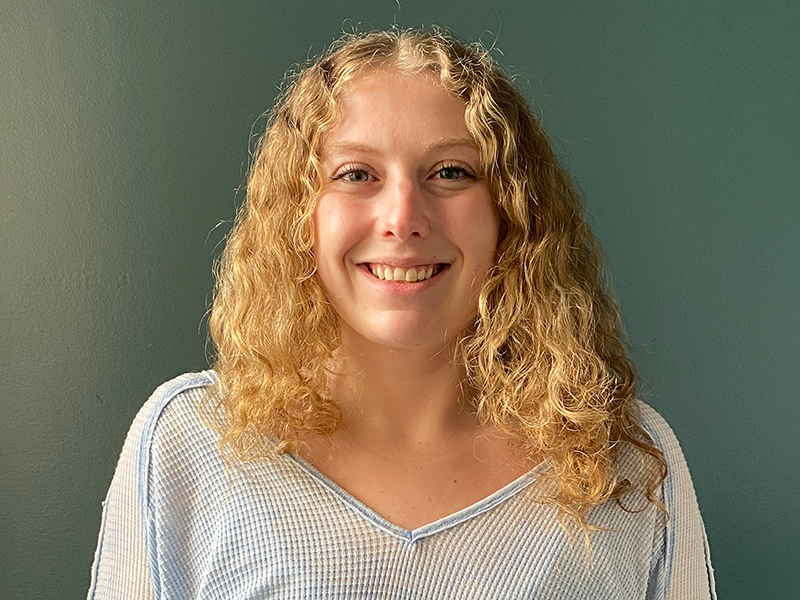Riley Fedewa selected as Schweitzer Fellow

International Health and Sustainable Development student Riley Fedewa has been selected as part of the incoming class of Albert Schweitzer Fellows.
The Albert Schweitzer Fellowship is dedicated to developing a pipeline of emerging professionals who enter the workforce with the skills and commitment necessary to address unmet health needs in the community.
New Orleans is one of 13 active Schweitzer programs across the United States.
Fedewa, who is in her second semester pursuing a Master of Public Health, was chosen from a pool of students enrolled in graduate and professional programs in the area. She demonstrated a passion for cultivating positive change in the New Orleans area to earn the fellowship.
“I’m fired up and ready to go,” Fedewa said. “I was very pleasantly surprised.”
Fedewa’s winning proposal included two main pieces: a data-centered plan of action and a social component. That two-pronged attack allowed her to integrate data and information systems with her passion for women’s empowerment.
Her plan will establish a database of resources and services available to New Orleans area homeless women essentially mapping them out in a way that better integrates communication among different organizations that serve the homeless population.
“I had this big, global idea, and the resources here at Tulane helped me narrow and focus that,” she says.
This approach of emphasizing communication among existing assets acknowledges the day-to-day challenges faced by the homeless population in the city. More specifically, a successful program has to account for transportation, or lack thereof, among the homeless, and she’s addressing that head on.
“When you’re homeless, space matters and distance matters far more,” she said. By utilizing an existing framework, she hopes no additional burden – like travel – will be placed on the population.
The plan also includes workshops – activities and seminars – led by community leaders, ideally many of whom are also women. The workshops will include topics such as financial literacy, career development, and network building.
The relationships established, however, might serve an even greater purpose she hopes.
The ultimate goal for Fedewa is for the homeless women of the greater New Orleans area to have a network of people they can rely upon and trust where they can obtain safe medical and health information and services.
“The power to command their health and command their life … that would make me very proud of my project if I could see one person feel very in charge of themselves, in charge of their decisions, and in charge of their health at the end of the day.”
It’s not an easy goal to achieve. COVID-19 helped reveal a lack of trust in institutions among many populations, including the homeless, and that trust is key. Fedewa acknowledges it’s not always found in relationships with large institutions, but rather in smaller, personal interactions.
“What I really would like is to establish this network, and then within that, develop health-seeking behaviors. Thinking about health in a way that is holistic [mental and body] and then also developing social relationships as well,” she said.
“I like the idea of intertwining ideas that people see as being separate,” she adds.
The open-ended nature of the fellowship is what ultimately sold Fedewa on applying.
“You have the ability to tackle any health issue or help any underserved population in New Orleans, and that can be modeled and formulated in any way that you would like,” she says.
Operating since 2007, the Albert Schweitzer Fellowship boasts 133 graduates, 67 partner organizations, and over 26,000 hours of community service. Those interested in learning more can visit their website at asfnola.org.
###
